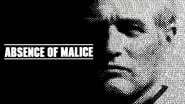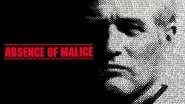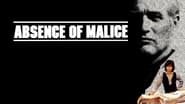mark.waltz
No matter how reliable the sources seem, reporting on possible crime elements involving private citizens requires more facts than just a supposed reliable source. So finds out ambitious Miami reporter Sally Field, so determined to be a part of the big boy's club that she takes on more than she's qualified to handle at this junction in her career and ends up paying the price. The victim of her scoop is an alleged crime figure (Paul Newman) who runs a waterfront liquor manufacturing corporation and is accused of being involved in the disappearance of a pivotal union boss. He claims that he was nowhere near Miami when the missing man disappeared but won't give an alibi. Field keeps digging and finds a key witness to Newman's whereabouts, but for the troubled Melinda Dillon, revealing where they were could destroy her life, and she begs Field to not reveal her name. But ambitious journalism knows no boundaries, and this leads to a horrific twist that threatens to come between Newman and Field's growing friendship and reveals some not so surprising developments in Miami's legal prosecution department.To tell the truth, you must interview many witnesses and determine which facts are key, which conflict with other information and the credibility of all sources. Field quickly spills a cup of coffee all over her desk when Newman unexpectedly pops by after her first story appears to demand to know where she got her information. This shows her greenness in the field of journalism, evident by her being kept out of a key video showing of the funeral of Newman's father where he was seen with key mob figures and got arrested for assaulting a police officer. As Field and Newman become closer and intimately involved, it becomes very apparent that something is going on in the legal world in the department of justice and that Newman is the intended fall guy for a crime that probably could never be solved. This culminates in a showdown with justice department head Wilford Brimley who must clean up all the messes yet help the department save face in the wake of a growing scandal.While the age difference between Field and Newman is very apparent, it's also to see why a young woman could fall for the still striking older Newman, fit and trim nearly 30 years into a still hot career. She's established to be ambitious but ethical, and this mistake early in her career might cost her a good job (although that is only hinted at), but it is obvious that she will learn from her mistakes and how not to be used in political wars between government and alleged crime figures. She's more of a quiet reactor to Newman's plea for justice, and coming off of her Oscar winning performance in "Norma Rae" adds another role to throw away the "Gidget" image. Her character identifies as a "Women's libber", but unlike many of today's modern feminists, she's aware that she's far from perfect and needs the mentorship of the men she works with, particularly her fair minded boss, typically nicknamed "Mac" (an amusing cliché in films about journalism.)As for Newman, he commands every scene he's in, and with "The Verdict" around the corner, proved that an aging actor with white hair could still be hot in an era where youth was taking over pretty much everywhere. His scenes with both Field and Dillon show the many layers he invests in this character, and his reaction to Field after a tragic event might raise eyebrows as an attempted rape, but something in the way the story is developed makes his actions understandable, and even Field's character seems to be aware that she has pushed him to his outburst. Dillon is as far from the lovable mother in "A Christmas Story" as she can be, closer to her role as Nick Nolte's sister in "Prince of Tides", and along with Newman, justifiably received an Oscar nomination. A superb script and excellent direction by Sydney Pollack make this a modern classic, although I feel it dates itself a bit in some aspects. Still, with those powerhouse performances and a story that is relevant even today, I find "Absence of Malice" to be quite timely and important. Every character is given layers to make them believably human, even the minor ones who have a few moments to make their participation in this film stand out. The film ends on a note of hope, although with the passing of time, it seems that journalism has not learned from past mistakes, and as long as a headline sells newspapers, stories like the one given for Newman will continue to pop up on the front page even if they don't reveal the entire truth.
SnoopyStyle
Michael Gallagher (Paul Newman) is a upstanding liquor wholesaler in Miami. His late father was a local gangster and so is his uncle Malderone (Luther Adler). The Strike Force headed by Elliott Rosen (Bob Balaban) leaks a story to reporter Megan Carter (Sally Field) that Michael is under investigation for Longshoremen union boss Joseph Diaz's disappearance. The paper's lawyer declares that the truth is secondary as long as there is an Absence of Malice. Soon Michael is struggling with the union refusing to work for him. He has an alibi but he refuses to use it. He had accompanied Teresa Peronne (Melinda Dillon) to get an abortion in Atlanta. Megan writes about the story and Teresa commits suicide. Megan breaks down and tells Michael the source of her original story.It's an interesting take on the damage of reporting of leaks. It's great to see the news media not put on a pedestal. There is a lot of truth in this. It is normal operations for everybody today. It is the counter argument to 'All the President's Men'. It does take a few unlikely turns but it doesn't go too far. I don't really buy the entire reversal of fortunes. Director Sydney Pollack does a capable job. I do wish he brings a grittier sensibility. Also the oversexualized Sally Field feels very awkward. And in the end, the movie leaves the murder unanswered.
tieman64
A reversal of "All The President's Men", Sydney Pollack's "Absence of Malice" sees an overzealous prosecutor leaking information to a young reporter (Sally Field). The leak involves Michael Gallagher (Paul Newman), a liquor wholesaler whose father had a criminal past and mob affiliations. When Field publishes her story, which implicates Gallagher in the murder of a unionist, Gallagher challenges her. He believes he was unfairly slandered.Unlike "All the President's Man", which saw valiant media-men carving through lies and half truths to get at facts (thereby rightfully exposing and incriminating), "Absence of Malice" thus does the opposite. Here, journalists and prosecutors trade in lies, half-truths and skirt around laws. Meanwhile, the film's victims are innocent businessmen who are wrongly accused of bullying unions. The film's title refers to a by-law which essentially allows journalists to "do wrong" if they can sufficiently prove that they harboured no ill intentions.Like most of Pollack's films, "Malice" is overlong, simply shot and drags.7/10 – Worth one viewing.
moonspinner55
Sydney Pollack is a solid, workman-like director who doesn't like to underline key moments with ostentation, he doesn't belabor certain points--and his pictures usually move along quite freely as a result. But with "Absence of Malice", he seems to have taken a page from Alan J. Pakula's film manual--"All the President's Men", in particular--and has slowed the pacing down to a crawl. Pollack also works well with his actors, yet this time he gets nothing at all interesting from Sally Field, cast as an overeager newspaper reporter who ruins an innocent working man's life with hearsay stories about him being involved with the Mafia. Paul Newman does a bit better as the target of her slander, and Melinda Dillon is very affecting as an emotionally-frail friend of Newman's who is maligned by proxy (both were Oscar-nominated). Still, the picture is mechanical, with a quasi-romantic subplot shoehorned in which doesn't make much sense (except to soften the squabbling characters). It doesn't even have a fresh, interesting look--just the same old visual clichés--and Pollack's reluctance to cut scenes down after their drama has played out slowly wears down the audience. *1/2 from ****









